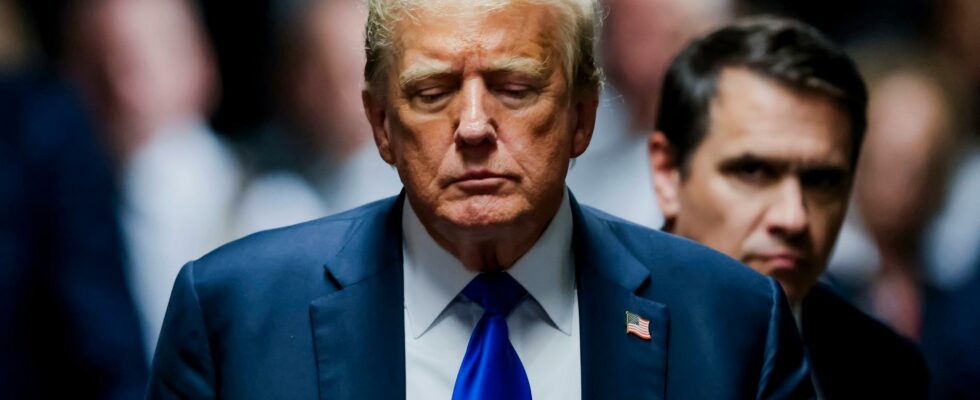Updated 19.01 | Published 19.01
unsaveSave
Former US President Donald Trump is accused of serious crimes in four major legal cases. Archive image.
1 / 4Photo: Justin Lane/Poolfoto Via AP/TT
The announcement by the US Supreme Court that a former president enjoys certain immunity makes it likely that Donald Trump’s criminal fate will be decided only after the presidential election.
Here is the status of the four major cases where Trump has been brought to justice.
New York: Mouth Breeding Money
Formally, it was about 34 cases of accounting violations that could lead to fines. But what was billed as “legal fees” were actually payments to people — among them porn actress Stephanie Clifford, known as Stormy Daniels — who threatened to release sensitive information about Trump ahead of the 2016 presidential election — making it more serious violations of election and tax laws .
On May 31 this year, Trump was convicted on all counts. The sentence is due to be announced on July 11, but his lawyers are asking for it to be postponed as they want parts of the evidence to be re-evaluated in light of the immunity notice.
.
Washington DC: Election Obstruction
Donald Trump has been charged with trying to have the results of the 2020 presidential election annulled, including in connection with the storming of the Capitol on January 6, 2021.
Special prosecutor Jack Smith’s indictment consists of four counts based on the premise that Trump wanted to divert or obstruct a government proceeding: the session of Congress where Joe Biden’s election victory was to be determined. It is also about lies about electoral fraud, the appointment of fake electors and pressure.
If Trump is convicted, he risks a maximum of 20 years in prison.
HD assesses, among other things, that Trump’s directive to the Department of Justice to investigate the election results falls within the office’s immunity. However, the court does not put its foot down in the matter of the call to tens of thousands of supporters in Washington DC to go to Congress and “fight the hell out”.
.
Georgia: Requested “find” votes
Donald Trump called the state’s chief electoral officer Brad Raffensperger after the 2020 election and asked him to “find” the 11,780 votes required for a Trump victory there.
One of the charges in the state indictment is based on Georgia’s special racketeering statute (called Rico) against 19 people, including Trump. The ex-president is charged with nine additional crimes and faces prison terms.
Various formal appeals mean that the start of the trial will be delayed until at least late autumn.
.
Florida: Handling of classified material
According to the indictment, Trump took reams of classified documents from the White House to his Florida residence Mar-a-Lago when his term ended. He is accused of refusing to return them and having surveillance footage destroyed.
Several of the charges fall under US espionage laws and many of them could lead to prison terms.
The trial was due to begin in May, but has been postponed indefinitely.
.
In addition to these cases, a number of civil and financial disputes are ongoing.
FACTS The president and the law
What actually applies legally to an American president is not entirely clear. If a president is guilty of “treason, bribery, or other high crimes and misdemeanors,” Congress can impeach him in accordance with the first article of the United States Constitution. Such charges were brought against Donald Trump twice, but he was never convicted.
When it comes to other crimes, it is often stated that a sitting president cannot be prosecuted, that other charges must wait until the person is no longer head of state. But can you be prosecuted for something you were not convicted of in an impeachment trial? The issue is legally sensitive, some observers emphasize the importance of the immunity of the presidency, while others point out that in the United States no one, not even the president, is above the law.
The issue has not previously been examined by the Supreme Court.
The question of whether a president has the right to pardon himself has no clear answer in the Constitution and is the subject of long legal debate.
Read more
